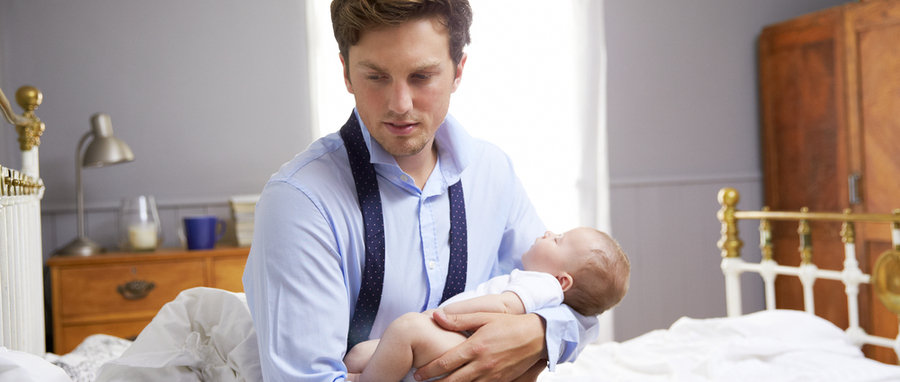Men are almost as likely to develop postpartum depression as women are, a new study suggests when they become new fathers. Most often, the topic of conversation regarding postpartum depression falls on women, who can experience a wild array of symptoms which can lead to a severe, even dangerous, disconnect from their child. Typically, the story is told with a befuddled, bewildered father trying to take on as much responsibility as possible while watching their wife and mother of their child suffer. The new study, published in the Journal of the American Medical Association (JAMA) Pediatrics, brings light to what is now confirmed to be an increasingly common issue. Men are struggling with postpartum depression as well.
Treatment and recovery set men up to live in as limitless a way as possible by helping them create sustainable changes which create a foundation for a sustainable recovery. However, mental health is still mental health- so to say that even with all the right conditions and circumstances like good health, solid recovery, and happy life- the unexpected can trigger a mental health issue. Fatherhood is instantaneous, no matter how a man prepares. One minute a woman is pregnant and the next, there is a living child in the mix. Men need to have an understanding of postpartum depression, the signs, the risk, and more, to prepare themselves as much as possible for the unexpected stressors of fathering an infant.
The study examined nearly more than 9,000 community health center visits by parents of newborns, infants, and toddlers, APlus.com reports. Researchers found that just .6 percent fewer fathers screened positive for depression than mothers. Fathers may display and cope with their depression differently than mothers, which is why many doctors may not take notice without a screening. Moreover, men are generally less likely to open up about emotional difficulties and ask for help. Though a man in recovery has learned how monumentally important speaking up about emotional struggles can be, he may still experience shame for feeling depressed as a new father, due to the societal pressures placed upon him to be strong for his new family. Interestingly, one professional found, half of the men who have partners struggling with postpartum depression are also depressed themselves. Meaning, men may be trying their best to cope with a problematic environment, but cannot support their mental health enough.
Depression in early fatherhood can be triggering for a man’s recovery, despite his possibly years of sobriety. Men who are actively seeking a lifetime of recovery should understand the potential risk for depression and set up a close network of support, as well as a system of self-care during such times. Depression, cravings, or struggles with mental health are never anything men should be ashamed of in a way which perpetuates their suffering.
If you are suffering from addiction issues, call Tree House Recovery today. Transform your life, inside and out as you find freedom from addiction. At Tree House Recovery in Orange County, California, we’re helping men create the sustainable changes necessary to build a sustainable recovery. Call us today for information: (855) 202-2138






